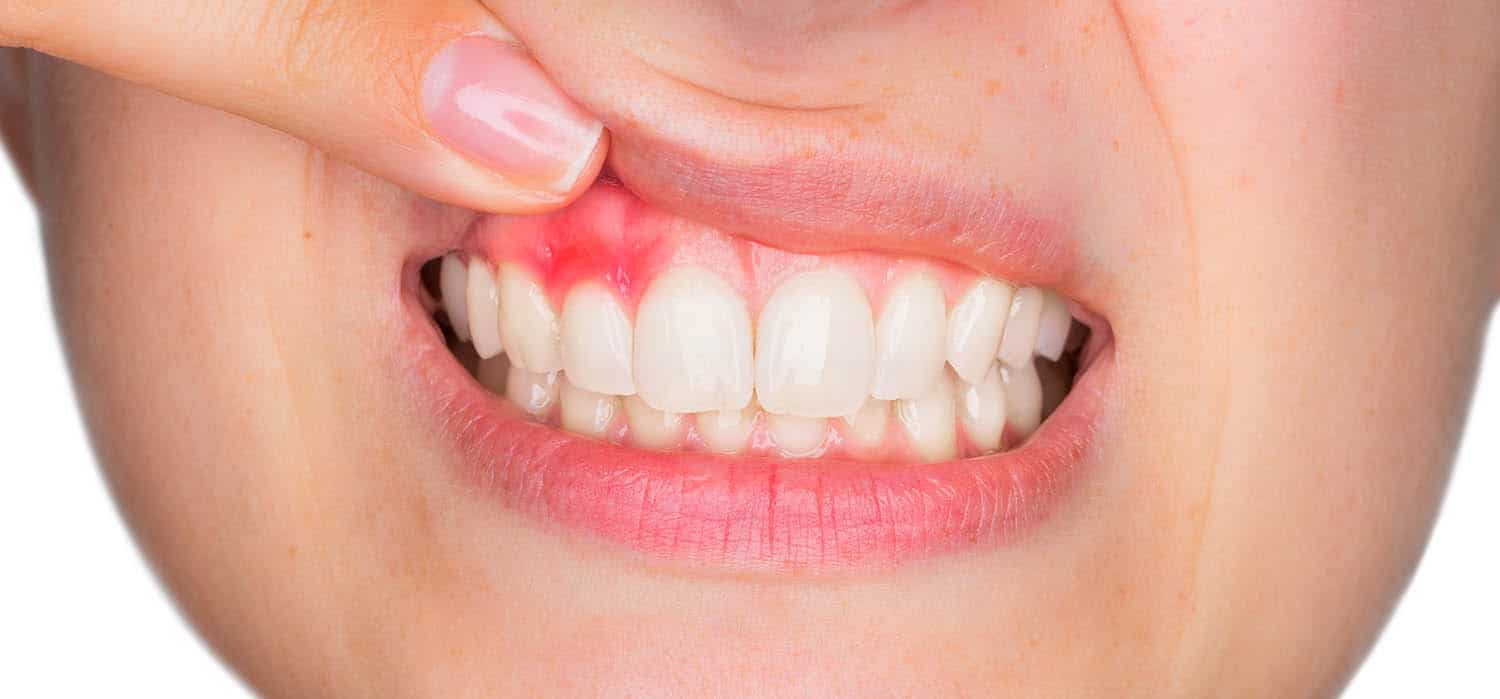Like many other health problems, gum disease is most responsive to treatment in the early stages. When it first starts, gum disease can be quite uncomfortable, but manageable. As it progresses, gum disease can destroy the bone that holds teeth in, which will eventually cause you to lose one or more teeth.
Gum disease is the result of bacteria that live in plaque, which is a sticky film that accumulates on the surface of your teeth and gums. If you don’t remove plaque by brushing and flossing on a regular basis, it can build up and turn into a hard, yellowish tartar that’s difficult to remove. Plaque and tartar hold the bacteria tight against your teeth and gums. In time, that bacteria can infect your teeth and gums- and at its worst gum disease can spread to infect your gum tissue and jaw bone.
The six signs of gum disease include:
- Bleeding gums
- Swollen, inflamed red gums
- Chronic bad breath
- Receding gums
- Formation of pockets between teeth and gums
- Loose teeth
Three Stages of Gum Disease
Gum disease is a progressive condition that gets worse over time without proper treatment. It typically progresses in three main stages:
Gingivitis
Gingivitis is the earliest stage in which plaque build-up irritates the tissues at the gum line. This irritation leads to inflammation. The bone and connective tissue are not affected during this stage, so proper dental care and gingivitis treatment can stop the progression of the disease and reduce the damage it causes.
Periodontitis
During the next stage of gum disease, known as periodontitis, the bacteria causes irreversible damage to the supportive bones and fibers that hold your teeth in place. Gums that normally connect firmly to your teeth begin to separate and cause the formation of a pocket below the gum line. This pocket traps food and plaque which allows bacteria to infect tissue deep below your gum line. In time, the bacteria begin to infect the bone and connective tissue that support your teeth. Proper dental treatment coupled with improved oral hygiene at home can prevent future damage.
Advanced Periodontitis
Advanced periodontitis is the final and most devastating stage of gum disease. During this stage, the disease destroys the fibers and bone, which allows your teeth to shift or loosen. Advanced periodontitis may even interfere with your ability to undergo other dental work, such as getting a dental crown to restore a tooth.
Fortunately, professional treatment from your dentist can help. Your dentist can perform deep cleaning, also known as gum therapy, to clean the gums and remove the tartar from the pockets between your gums and your teeth. Deep cleaning can stop gum disease in its tracks, before it has a chance to cause further damage to your supportive tissue and bone.
How to tell if you need to see your dentist for gum disease
Make an appointment with your dentist if you note any of the following signs of gum disease:
- Red, puffy or swollen gums that feel tender
- Gums that bleed while you brush or floss
- Teeth that appear to be longer because of receding gums
- Gums that have begun to pull away or completely separate from your teeth to create a pocket between your teeth and gums
- Changes in how your upper and lower teeth come together when you bite down
- Pus oozing from between your gums and teeth
- Constant bad breath or a bad taste in your mouth
How to manage or prevent gum disease
Fortunately, you can take steps to manage early stage gum disease or even prevent it from developing in the first place. Start with good oral health practices: brush twice a day and floss once daily, using proper technique. Eat a balanced diet that is low in carbohydrates and rich in nutrients. Avoid tobacco products, as tobacco can weaken your body’s ability to heal itself, which makes it hard for gum disease to go away.
One of the most important things you can do is to undergo professional cleaning performed by a dental hygienist. Professional cleanings remove plaque build-up and tartar before they cause gum disease.
For more information about managing early stage gum disease, contact your dentist or dental hygienist.
Triangle Dentistry, located in Raleigh, NC, provides a state-of-the-art facility that offers exceptional general dental and specialty services guided by empathy of a patient’s needs and desires. Services range from dental crowns to veneers and whitening procedures. For further information, questions, or to schedule an appointment, contact the office at (919) 847-6000
